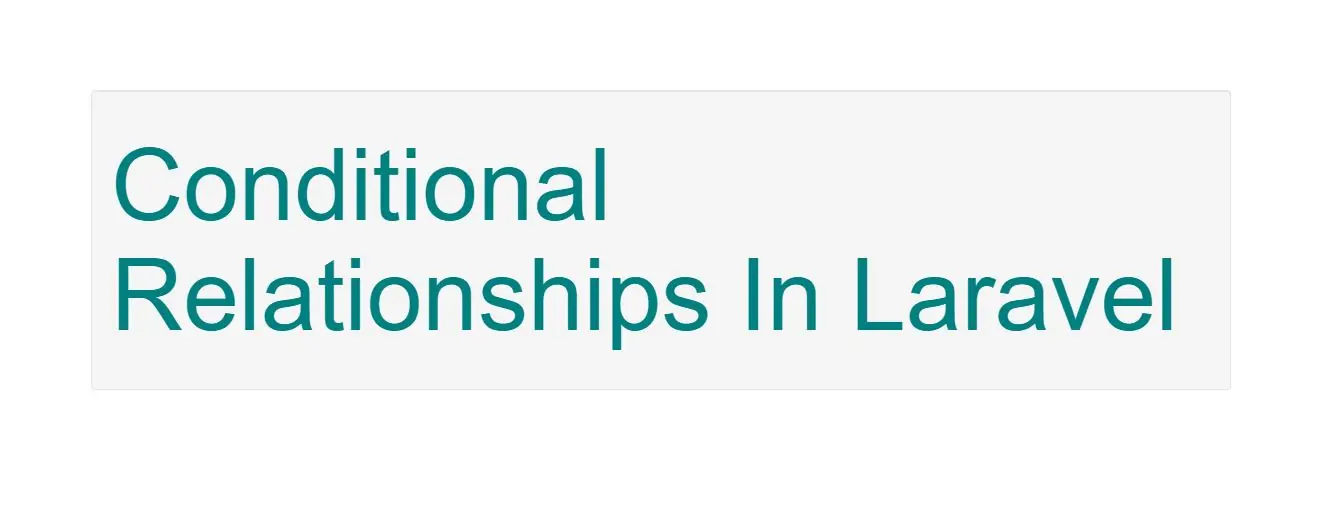
Conditional Relationships
In addition to conditionally loading attributes, you may conditionally include relationships on your resource responses based on if the relationship has already been loaded on the model. This allows your controller to decide which relationships should be loaded on the model and your resource can easily include them only when they have actually been loaded.
Ultimately, this makes it easier to avoid "N+1" query problems within your resources. The whenLoaded method may be used to conditionally load a relationship. In order to avoid unnecessarily loading relationships, this method accepts the name of the relationship instead of the relationship itself:
<?php
namespace App\Http\Resources;
use Illuminate\Http\Resources\Json\JsonResource;
class User extends JsonResource
{
/**
* Transform the resource into an array.
*
* @param \Illuminate\Http\Request $request
* @return array
*/
public function toArray($request)
{
return [
'id' => $this->id,
'name' => $this->name,
'email' => $this->email,
'posts' => PostResource::collection($this->whenLoaded('posts')),//create PostResource
'created_at' => $this->created_at,
'updated_at' => $this->updated_at,
];
}
}
To Create Resources visit our Bajarangisoft site.
In this example, if the relationship has not been loaded, the posts key will be removed from the resource response entirely before it is sent to the client.
Conditional Pivot Information
In addition to conditionally including relationship information in your resource responses, you may conditionally include data from the intermediate tables of many-to-many relationships using the whenPivotLoaded method. The whenPivotLoaded method accepts the name of the pivot table as its first argument. The second argument should be a Closure that defines the value to be returned if the pivot information is available on the model:
<?php
namespace App\Http\Resources;
use Illuminate\Http\Resources\Json\JsonResource;
class User extends JsonResource
{
public function toArray($request)
{
return [
'id' => $this->id,
'name' => $this->name,
'expires_at' => $this->whenPivotLoaded('role_user', function () {
return $this->pivot->expires_at;
}),
];
}
}
If your intermediate table is using an accessor other than pivot, you may use the whenPivotLoadedAs method:
<?php
namespace App\Http\Resources;
use Illuminate\Http\Resources\Json\JsonResource;
class User extends JsonResource
{
/**
* Transform the resource into an array.
*
* @param \Illuminate\Http\Request $request
* @return array
*/
public function toArray($request)
{
return [
'id' => $this->id,
'name' => $this->name,
'expires_at' => $this->whenPivotLoadedAs('subscription', 'role_user', function () {
return $this->subscription->expires_at;
}),
];
}
}